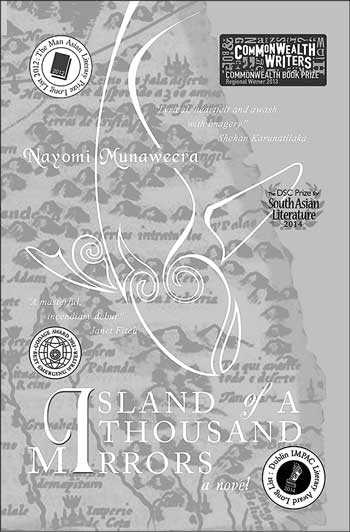Wednesday Feb 18, 2026
Wednesday Feb 18, 2026
Saturday, 29 December 2018 00:00 - - {{hitsCtrl.values.hits}}
 For years to follow, it is quite natural for people to write stories about events that traumatised them. In a global context, people still write extensively about the Second World War, and analogously, in a local context, it is equally normal for Lankan writers to set their stories within the backdrop of the Sri Lankan civil war.
For years to follow, it is quite natural for people to write stories about events that traumatised them. In a global context, people still write extensively about the Second World War, and analogously, in a local context, it is equally normal for Lankan writers to set their stories within the backdrop of the Sri Lankan civil war.
Reading these stories is often a cathartic experience that helps one come to terms with the effects of communal violence; to understand how someone who was once close friends with you can suddenly turn against you. Fictionalised accounts make one wonder whether the “other” is really that different from us.
Filled with lush sensual imagery, Nayomi Munaweera’s debut novel, Island of a Thousand Mirrors, is one such book and was deservedly long-listed for the Man Asia Literary Prize and the Dublin IMPAC Prize. It was short-listed for the DSC Prize and the Northern California Book Prize. It won the Commonwealth Regional Prize for Asia. It also won a Godage Prize giving it local recognition and validation and it was a Target Book Club selection in America.
As you may imagine, the novel’s critical as well as commercial success brought Munaweera instant recognition as a writer and catapulted her into the category of writers to watch out for.
The plot of Island of a Thousand Mirrors may seem simple, but it is one that lets Munaweera’s fluid, descriptive writing style shine through. Her vivid imagery readily evokes everything that is quintessentially Lanka and immerses you effortlessly into the story and its characters, holding you captive until the very end.
Reduced economic circumstances force the Ranasinghe family to rent out the upper floor of their home to the Shivalingam family. Thus Yasodhara and her sister Lanka and their partner-in-crime, Shiva, grow up in the same house in Colombo — the Sinhala girls downstairs and the Tamil boy upstairs, in separate worlds that will soon match Sri Lanka’s.
As the civil war begins to simmer in the background and conditions in the country deteriorate from one day to the next, the war invades both families, and Yasodhara and her sister migrate to America with their parents leaving behind our island of forbidden love, prejudice, and arranged marriages. Meanwhile, somewhere in a village in the north, Saraswathi, a Tamil teenager who finds beauty in mathematical equations, lives with her dancer mother, lame father and giddy little sister. The violence of the legitimate Army combines with that of the Tamil Tigers to slowly erode whatever happiness or comfort this family enjoyed.
The uneasy relationship between “liberation movements” and those they seek to liberate is convincingly portrayed, as are the constant negotiations civilians have to make to survive in a war zone — take that child but leave me this one.
These two women, Yasodhara and Saaraswathi’s paths cross in unimaginable ways. The narration shifts between the two  young women as they mature, each unknown to the other, but whose destinies are inextricably linked. The story is rhythmically paced and rapidly alternates between points of view as the climax approaches, building the suspense to a fever pitch.
young women as they mature, each unknown to the other, but whose destinies are inextricably linked. The story is rhythmically paced and rapidly alternates between points of view as the climax approaches, building the suspense to a fever pitch.
The novel convincingly makes the point that there are two sides to every conflict and that the moral distinctions we make are shadowed in multiple shades of gray. As the book draws to a close, so does the war, ending on a hopeful note.
Island of a Thousand Mirrors is a book that will remain in your mind long after you’ve turned the last page.
(Sam Perera is a partner of the Perera-Hussein Publishing House, which publishes culturally relevant stories by emerging and established Lankan and regional authors – for a primarily Lankan audience. Ph books are available everywhere books are sold and through www.pererahussein.com)
Island of a Thousand Mirrors – a novel